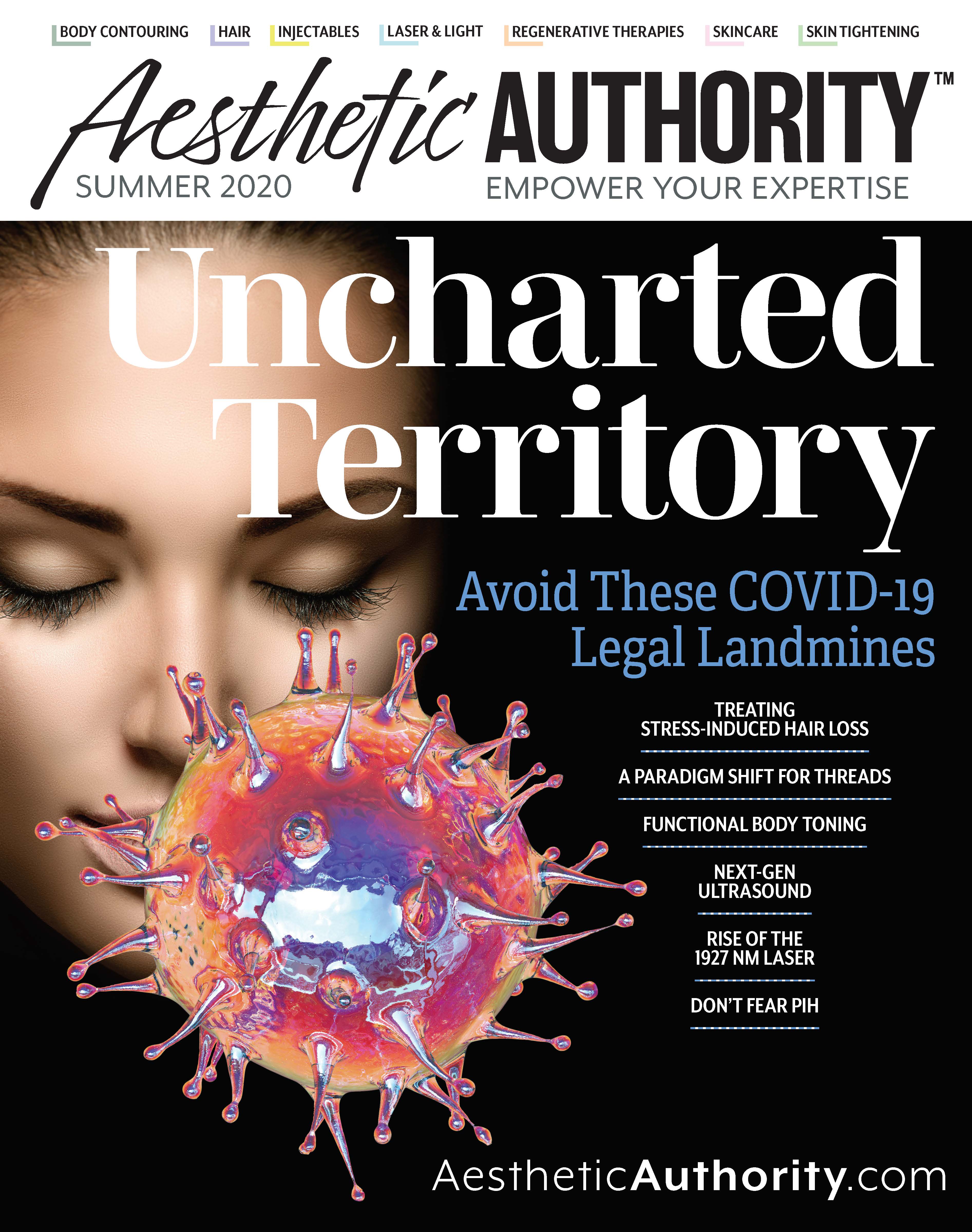- Case-Based Roundtable
- General Dermatology
- Eczema
- Chronic Hand Eczema
- Alopecia
- Aesthetics
- Vitiligo
- COVID-19
- Actinic Keratosis
- Precision Medicine and Biologics
- Rare Disease
- Wound Care
- Rosacea
- Psoriasis
- Psoriatic Arthritis
- Atopic Dermatitis
- Melasma
- NP and PA
- Skin Cancer
- Hidradenitis Suppurativa
- Drug Watch
- Pigmentary Disorders
- Acne
- Pediatric Dermatology
- Practice Management
- Prurigo Nodularis
- Buy-and-Bill
Publication
Article
Aesthetic Authority
Two Essential Safety Measures During COVID-19
Author(s):
According to Jeff Segal, M.D., J.D., assuming everyone is pre symptomatic for COVID-19 will keep your safety senses sharp.
This is part 2 of a 2-part series
Part 1: Avoiding Legal Landmines During COVID-19
According to Jeff Segal, M.D., J.D., Founder, Medical Justice Service, you should assume that everyone is pre symptomatic.
“Assume they've been exposed. That way you will do the two things that you must remember, which is wear a mask, wash your hands; wear a mask, wash your hands; wear a mask, wash your hands. If you remember nothing else remember that,” he emphasizes.
Dr. Segal believes the best way to screen for COVID-19 is a prescreening call using the CDC checklist, which allows the physician to ask about symptoms and commit the answers to paper. If you’re in a state that requires testing, and a patient tests positive, he says, instruct them to follow up with their general physician.
“[After they’ve followed up with their general physician] if you want to be a nice person, you probably should call them afterwards and see how they did. It's helpful to… close the loop and get an understanding of what worked, what didn't work and so on,” suggests Dr. Segal.
As an additional measure of protection, Anthony Geroulis, M.D., J.D., a facial plastic surgeon in Chicago, suggests regular follow ups with patients who test positive for COVID-19.
“If anybody turns out to be COVID-positive… refer them to their family doctors, document it all and check on them every week or so. And document the fact that you're following up and checking on them, so that you cannot be accused of any kind of abandonment,” he says.
Amidst all the extra measures taken, it begs the question: Is testing more trouble than it’s worth? Dr. Segal suggests it may be.
“Unless you are forced to do it by law, I think you may be opening up a can of worms above and beyond just doing the clinical checklist on the telephone as well as assuming that everyone is pre symptomatic,” he says.
But, says Dr. McCollough, he has a good reason for testing in his Alabama practice.
“We do require testing for all of our patients… because that tells the patient or tells us whether or not the patient has an active infection,” he says.
Do the Right Thing
In Dr. McCollough’s practice handshakes and hugs have been replaced by face masks and hand sanitizing.
“I want the patients to see that we're doing everything that we can,” says Dr. McCollough. “I walk in the room with my mask on, and… I squirt [sanitizer] in my hands. I have them seeing me do that.”
By doing so, he believes his patients will recognize that he and his staff are exercising an abundance of precaution.
"It's just a matter of being conscious of all of these things and trying to do the right thing. I don't know that we can ever totally protect ourselves against litigation. But I think it's making an effort.”
Ultimately, Dr. Waldman uses a fitting analogy to drive home the take-away message.
“This is like a marathon. We're in the first hour two or three maybe, but we want to be able to finish the race. We don't want to use up all of our energy on that front end. So if we're careful on the front end, I think we'll be rewarded at the end of the race with lots of cheers and patients who believe that we did it the right way… Ultimately our reputations are everything that we have.”
At the end of the day, “You’re in the business of treating healthy patients and you want to remain that way,” says Adatto. “If… there's just one takeaway [it’s] safety first. You do that [and] I think you'll be safe across the board, and you'll be able to sleep better at night knowing that you won't be stepping on those landmines.”






